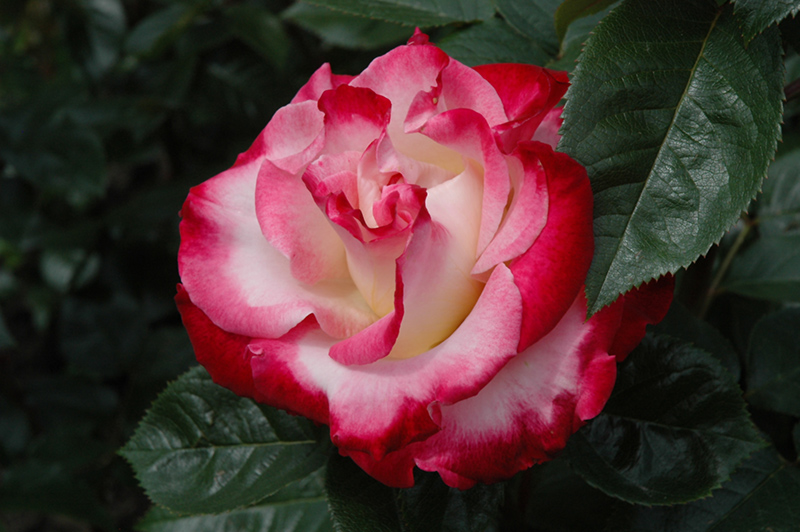>> Home
Height: 4 feet
Spread: 4 feet
Sunlight:
![]()
Hardiness Zone: 5
Group/Class: Grandiflora Rose
Description:
An extraordinary variety producing cherry-pink blooms with cream reverses and a hint of yellow that will blush burgundy red in the sun; hardy and highly disease resistant, this selection is an all around garden shrub
Ornamental Features
Dick Clark Rose features bold fragrant double hot pink flowers with buttery yellow overtones and a creamy white reverse at the ends of the branches from late spring to early fall, which emerge from distinctive dark red flower buds. The flowers are excellent for cutting. It has dark green deciduous foliage. The glossy oval compound leaves turn yellow in fall. The spiny brick red bark adds an interesting dimension to the landscape.
Landscape Attributes
Dick Clark Rose is a multi-stemmed deciduous shrub with an upright spreading habit of growth. Its average texture blends into the landscape, but can be balanced by one or two finer or coarser trees or shrubs for an effective composition.
This is a high maintenance shrub that will require regular care and upkeep, and is best pruned in late winter once the threat of extreme cold has passed. Gardeners should be aware of the following characteristic(s) that may warrant special consideration;
- Disease
- Spiny
Dick Clark Rose is recommended for the following landscape applications;
- Accent
- Mass Planting
- Hedges/Screening
- General Garden Use
Planting & Growing
Dick Clark Rose will grow to be about 4 feet tall at maturity, with a spread of 4 feet. It tends to fill out right to the ground and therefore doesn't necessarily require facer plants in front. It grows at a medium rate, and under ideal conditions can be expected to live for approximately 20 years.
This shrub should only be grown in full sunlight. It does best in average to evenly moist conditions, but will not tolerate standing water. It may require supplemental watering during periods of drought or extended heat. It is not particular as to soil type or pH. It is somewhat tolerant of urban pollution. This particular variety is an interspecific hybrid.
